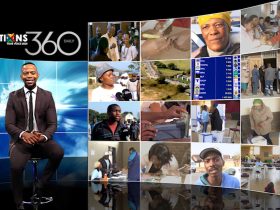The auto-mobility gap South Africa: How it robs the deserving working middle class of opportunity
Transport facilitates social inclusion and wellbeing, yet its connection to inequality is often overlooked. Socio-economic disparities and transport are linked through three factors: where people live and how far they are from the places they need to get to; the distribution of opportunities like jobs and education; and the accessibility of public transport.
In all these areas, economically disadvantaged people are worse off due to the apartheid-era’s spatial planning. The services in poorer areas in South Africa are often underfunded – and in some cases are not present at all – leaving people travelling long distances to reach a hospital, school or workplace.
This would be less of an issue if public transport was effective, but it too is undeveloped and expensive. Turning this situation around by creating affordable and effective public transport networks will take decades at the current glacial pace. In the interim, we need creative solutions from both the government and private industry to close the gap.
Grant Wing, COO of Planet42 shares Lebo’s story and how they made a difference to this registered nurse from Johannesburg’s life. Lebo’s work requires her to travel to see her clients which are often far away from home with no convenient public transport. Because she didn’t have her own car, her only option was to take a rental car. She was constantly penalised for high mileage usage to the point that rental costs amounted to more than half of her salary. This is money she could have been saving or investing into her home or education. Instead, it was being depleted by transport costs.
She came across Planet42, reached out to one of their dealerships, found a second-hand car she liked and submitted the online application. She knew the banks were not willing to provide her vehicle financing because of some minor credit issues in the past, and they unfairly saw her as a high-risk person.
Now that she has her own car, she’s paying 60% less per month on her transport to and from work. It’s safer, more convenient, and more affordable. And, of course, the car can be used on everything else Lebo needs to do, like pick up groceries and visit family.
Car subscriptions – an approach that works
Rent-to-buy car subscriptions could play an important role in democratising transport while a more comprehensive and reliable public transport infrastructure is put in place. The benefit of this approach is that it can be rapidly scaled out, making transport more accessible to people who are rejected by traditional financial institutions.
For many people, a personal vehicle is the quickest ticket to a better life.
























Leave a Reply